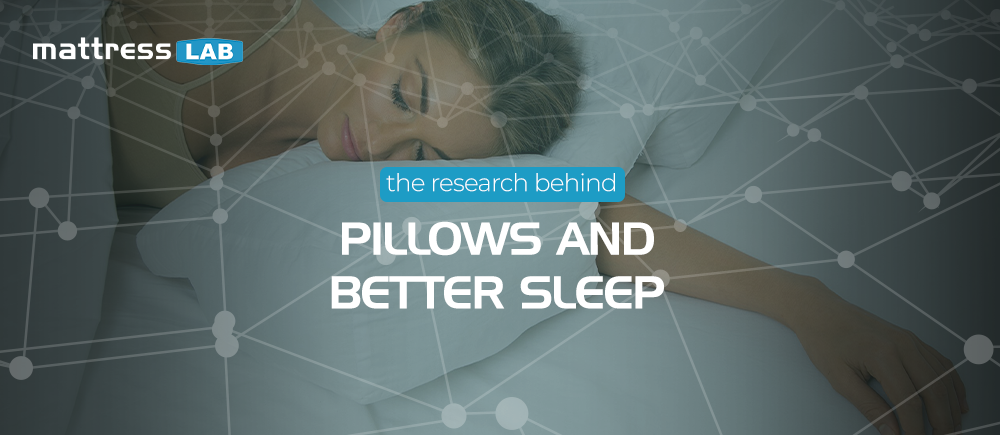Sleep is something we all crave, but not everyone wakes up feeling truly rested. Sometimes, the secret to better sleep isn’t just about your mattress or bedtime routine—it’s something simpler and often overlooked: your pillow.
So, how can a pillow improve sleep quality? The right pillow supports your head and neck, helps maintain good alignment, and can even reduce tossing and turning. In this article, we’ll explore how choosing the right pillow can make a big difference in getting the deep, refreshing sleep you deserve.
The Role of a Pillow in Sleep Quality
1. Supporting Proper Neck and Spine Alignment

Your neck and spine should stay in a neutral position while you sleep. If your pillow is too high or too flat, your neck bends unnaturally. This can cause tension, stiffness, or even pain. A good pillow supports the natural curve of your neck, helping to keep everything aligned. That means less strain and more comfort.
2. Enhancing Comfort and Reducing Pressure Points
Your bed pillow cushions your head and shoulders, softening pressure points. This makes it easier to fall asleep and stay asleep. When your body feels supported, you don’t wake up sore or restless.
3. Minimizing Tossing and Turning
If your pillow isn’t right for you, you might toss and turn trying to get comfortable. This constant movement can cause significant sleep disruption, interrupting deep rest and making you feel tired the next day. A pillow that fits your sleep style keeps you cozy and still.
4. Promoting Healthy Breathing and Reducing Snoring
Believe it or not, your pillow height and firmness can affect how well you breathe. If your pillow lifts your head just enough, it can open your airways and reduce snoring. On the other hand, a pillow that’s too thick or too thin can make breathing harder and disrupt sleep
Why the Right Pillow Matters
The best pillows are more than just a cushion for your head. It plays a key role in maintaining good sleep health. It supports your neck, helps keep your spine aligned, and reduces tension. This means fewer aches, less tossing, and better rest.
When your spine is in a good position, your muscles relax. You wake up feeling refreshed and pain-free, rather than stiff or sore.
Different Pillow Types and Their Benefits

Pillows come in many shapes and materials. Here’s a quick look at some popular types and what they offer:
-
Memory foam pillows contour to the shape of your head and neck. They offer firm, even support that many find comfortable.
-
Down and feather pillows are soft and adjustable. You can fluff them up or flatten them depending on how you like.
-
Latex pillows are bouncy and durable. They resist dust mites and are great for allergy sufferers.
- Adjustable pillows allow you to add or remove filling to achieve the perfect height and firmness.
Choosing the right type depends on your sleep position, comfort preferences, and any allergies you may have.
How a Pillow Can Reduce Tossing and Turning
When your pillow supports your head and neck well, your body stays comfortable. That means you don’t have to wake up to shift your position constantly.
If your pillow causes neck or shoulder pain, you’ll wake up often and lose deep sleep. Good support also helps if you switch between sleeping on your side, back, or stomach.
Tips for Choosing the Right Pillow
Picking the best pillow means thinking about how you sleep:
- Side sleepers usually need thicker, firmer pillows to fill the space between their shoulder and head.
- Back sleepers benefit from medium-loft pillows that keep the neck aligned without pushing the head too far forward.
- Stomach sleepers often prefer thinner, softer pillows to avoid neck strain.
Also, consider your body size and any neck or back pain you might have. And don’t forget to replace your pillow every 1-2 years to keep the support fresh and clean.
Signs Your Pillow Might Be Hurting Your Sleep
Sometimes, your pillow is the hidden reason you’re not sleeping well. Watch out for:
-
Morning neck or shoulder pain
-
Feeling stiff or sore after sleeping
-
Tossing and turning more than usual
-
Allergies or congestion that might come from an old pillow
If any of these sound familiar, it might be time for a new pillow.
Final Thoughts
A pillow is a small part of your sleep setup, but it makes a big difference. The right pillow supports your neck, eases pressure, and helps you breathe easier. That means better sleep and waking up feeling more rested.
If you’re ready to improve your sleep quality, start with your pillow. Find one that fits your needs and sleeping style. For a great selection of pillows that help improve sleep, check out Mattress Lab. We offer options that many people love for comfort and support.
FAQs
How often should I replace my pillow?
Most pillows last 1-2 years before they lose support or collect allergens. If yours feels flat or lumpy, it’s time to swap.
Can the wrong pillow cause headaches?
Yes! Poor neck support can lead to tension headaches or neck stiffness. The right pillow helps keep your neck properly supported and relaxed.
What pillow is best for side sleepers?
Side sleepers usually need a thicker, firmer pillow to keep the neck aligned with the spine.
Does pillow material affect sleep quality?
Definitely. Materials like memory foam or latex can offer better support. Allergies may also affect your choice.
How do I know if my pillow is right for me?
If you wake up pain-free and feel rested, your pillow is probably a good fit. If not, consider your sleep position and comfort needs.




Leave a comment
This site is protected by hCaptcha and the hCaptcha Privacy Policy and Terms of Service apply.